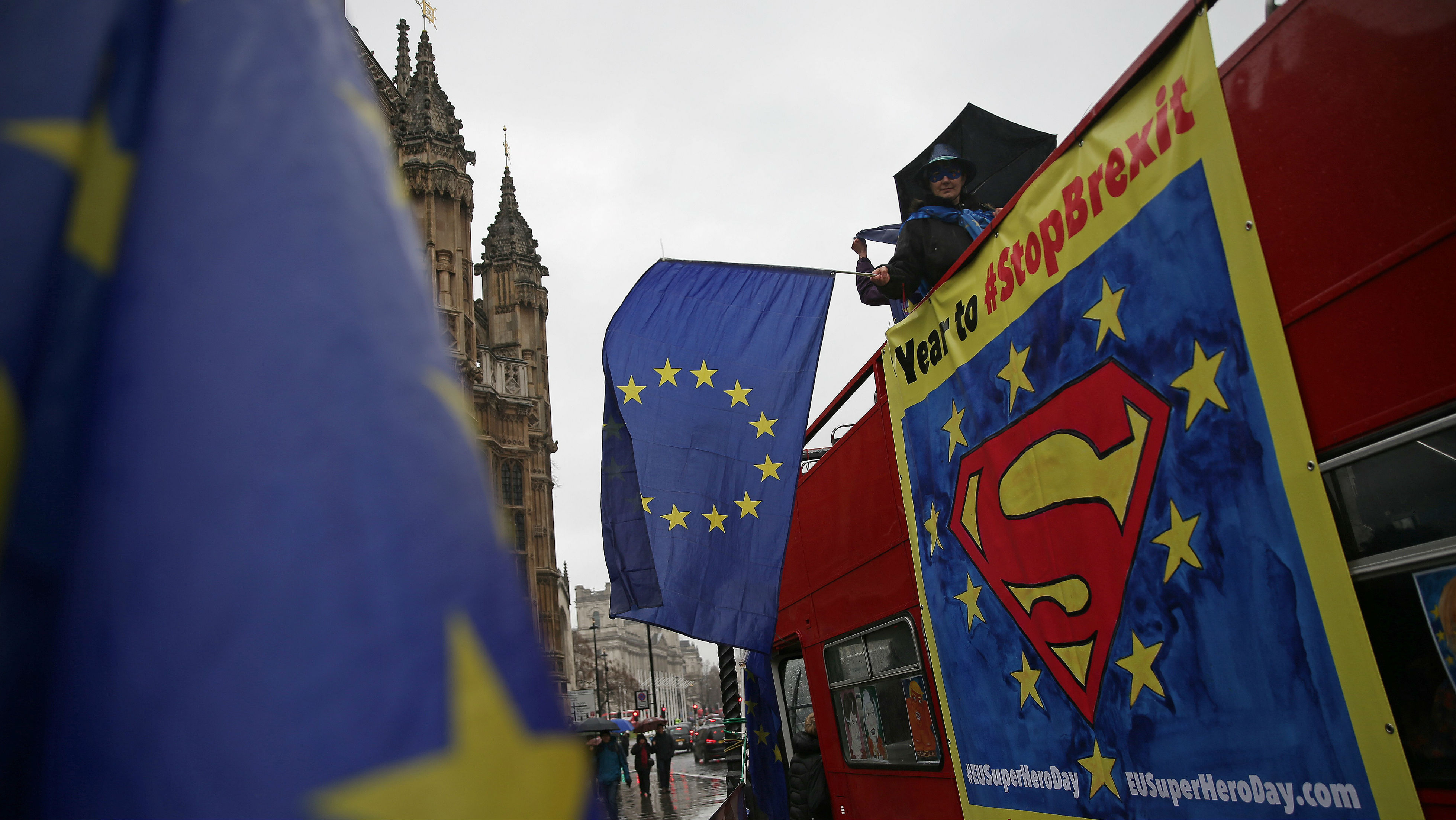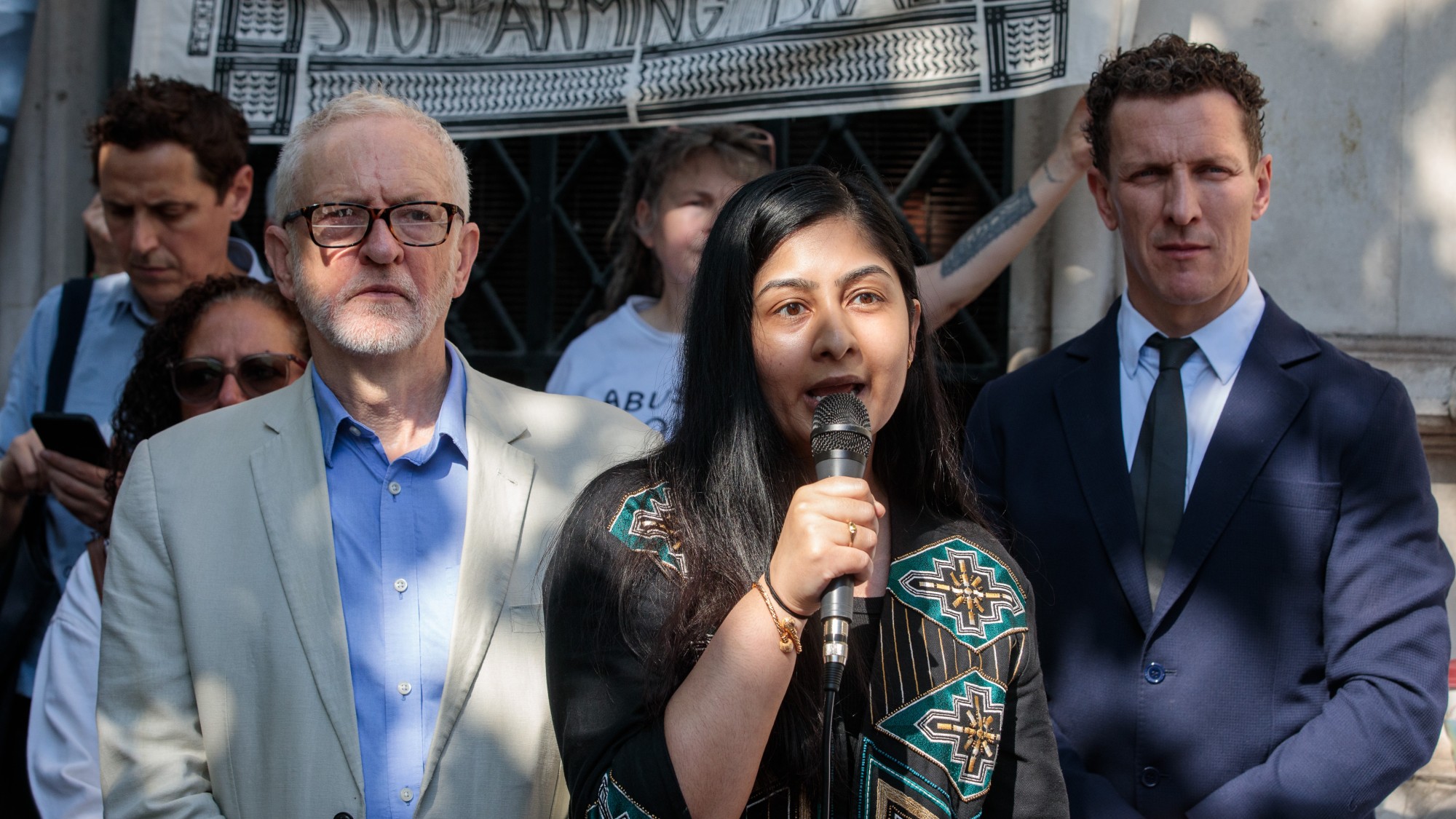Can Brexit be stopped?
Theresa May warns that blocked EU exit is more likely than no-deal scenario

A free daily email with the biggest news stories of the day – and the best features from TheWeek.com
You are now subscribed
Your newsletter sign-up was successful
Prime Minister Theresa May is to warn that Parliament is more likely to block Brexit than allow the UK to leave the European Union without a deal.
Around 100 of her own Tory MPs, along with the Democratic Unionist Party’s ten MPs, Labour and other opposition parties, are expected to vote against May’s deal in Tuesday’s key Commons vote.
In a speech to factory workers in Stoke-on-Trent today, the PM will warn that “people’s faith in the democratic process and their politicians would suffer catastrophic harm” if the result of the referendum is not implemented.
The Week
Escape your echo chamber. Get the facts behind the news, plus analysis from multiple perspectives.

Sign up for The Week's Free Newsletters
From our morning news briefing to a weekly Good News Newsletter, get the best of The Week delivered directly to your inbox.
From our morning news briefing to a weekly Good News Newsletter, get the best of The Week delivered directly to your inbox.
“There are some in Westminster who would wish to delay or even stop Brexit and who will use every device available to them to do so,” she will say.
But can Brexit really be stopped?
What happens next?
Following further debates today on Brexit, MPs will take part in a “meaningful vote” tomorrow, with “No. 10 braced for a defeat by an unprecedented majority of more than 200”, reports The Daily Telegraph.
A free daily email with the biggest news stories of the day – and the best features from TheWeek.com
May then has three working days to come up with a so-called plan B. She is likely to go straight to Brussels to ask for further concessions from the EU ahead of another vote on a back-up plan next week, says the BBC.
The UK is due to leave the EU on Friday 29 March, unless MPs vote to delay or cancel Brexit.
How could Brexit be cancelled?
Remainer MPs will “raise the stakes” today by publishing draft legislation to force a second referendum, says the Telegraph. They want voters to be given the choice between May’s deal or staying in the EU.
“The draft law could in theory be tabled as early as Monday next week,” says the newspaper, but adds that this would require Speaker John Bercow to “suspend centuries-old rules and make it easier for MPs to table laws that can be passed”.
The Remainers would also need to table new legislation to abandon the 29 March deadline.
Meanwhile, if May suffers a heavy defeat tomorrow, Labour leader Jeremy Corbyn is expected to table an immediate vote of no confidence in her government in a bid to force a general election.
Labour’s current policy is to renegotiate a new Brexit deal, but Corbyn has signalled that this is not set in stone.
Speaking on The Andrew Marr Show yesterday, he did not rule out backing a second referendum nor opposing Brexit altogether, saying he would listen to the views of union chiefs, party officials and senior Labour MPs to decide the party’s next manifesto content.
What does the public want?
The latest poll for The Independent, by BMG Research, found that a new referendum was the most popular path if May’s deal is rejected. Of more than 1,500 respondents, 46% favoured a second referendum, 28% were against and 26% did not know. The potential option of remaining in the EU was backed by 45%, with 39% opposed to reversing Brexit and 16% saying they did not know.
-
 Political cartoons for February 22
Political cartoons for February 22Cartoons Sunday’s political cartoons include Black history month, bloodsuckers, and more
-
 The mystery of flight MH370
The mystery of flight MH370The Explainer In 2014, the passenger plane vanished without trace. Twelve years on, a new operation is under way to find the wreckage of the doomed airliner
-
 5 royally funny cartoons about the former prince Andrew’s arrest
5 royally funny cartoons about the former prince Andrew’s arrestCartoons Artists take on falling from grace, kingly manners, and more
-
 How corrupt is the UK?
How corrupt is the UK?The Explainer Decline in standards ‘risks becoming a defining feature of our political culture’ as Britain falls to lowest ever score on global index
-
 The high street: Britain’s next political battleground?
The high street: Britain’s next political battleground?In the Spotlight Mass closure of shops and influx of organised crime are fuelling voter anger, and offer an opening for Reform UK
-
 Biggest political break-ups and make-ups of 2025
Biggest political break-ups and make-ups of 2025The Explainer From Trump and Musk to the UK and the EU, Christmas wouldn’t be Christmas without a round-up of the year’s relationship drama
-
 ‘The menu’s other highlights smack of the surreal’
‘The menu’s other highlights smack of the surreal’Instant Opinion Opinion, comment and editorials of the day
-
 Is a Reform-Tory pact becoming more likely?
Is a Reform-Tory pact becoming more likely?Today’s Big Question Nigel Farage’s party is ahead in the polls but still falls well short of a Commons majority, while Conservatives are still losing MPs to Reform
-
 The launch of Your Party: how it could work
The launch of Your Party: how it could workThe Explainer Despite landmark decisions made over the party’s makeup at their first conference, core frustrations are ‘likely to only intensify in the near-future’
-
 Taking the low road: why the SNP is still standing strong
Taking the low road: why the SNP is still standing strongTalking Point Party is on track for a fifth consecutive victory in May’s Holyrood election, despite controversies and plummeting support
-
 Your Party: a Pythonesque shambles
Your Party: a Pythonesque shamblesTalking Point Comical disagreements within Jeremy Corbyn and Zarah Sultana's group highlight their precarious position